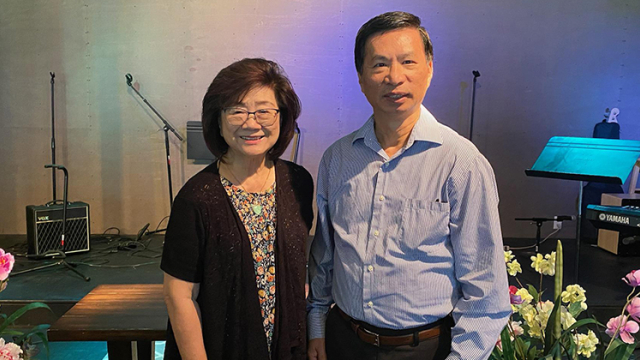
Steps Toward Unity
The challenges of the National Chinese Fellowship of the Assemblies of God remain much the same as when the group formed 19 years ago: winning converts to Christ and nurturing new ministers to reach the next generation.
The organization, one of two dozen ethnic/language fellowships in the U.S. AG, consists of 20 congregations and around 1,500 adherents in California, Missouri, New York, Colorado, and Hawaii. Adherents don’t necessarily come from mainland China. They hail from countries such as Taiwan, Indonesia, Malaysia, Cambodia, Singapore, Vietnam, and Bangladesh. One of the challenges is uniting the attendees, who speak different dialects and belong to a variety of subcultures. For instance, a congregation may split over whether sermons are preached in Cantonese or Mandarin or English.
Jason P. Quah, president of the National Chinese Fellowship since 2015, pastored Emmanuel Assembly of God in his native Malaysia starting, a church in Ipoh founded by American missionary Lula Baird. He also led First Assembly of God in Kuala Lumpur, the first AG church opened in Malaysia in 1934.
Quah immigrated to the U.S. in 2007 and has since pastored Bethel Assembly of God (formerly Bethel Chinese AG) in New York’s Chinatown. Bethel, with 135 regular congregants, has a Chinese Sunday service in Cantonese (with Mandarin translation) as well as an English-language service. Many in the Manhattan church are first-generation immigrants working as housekeepers or nannies.
Quah, an AG general presbyter, has goals of unity and evangelism for the National Chinese Fellowship.
“We want to partner with other AG churches and minister to as many in the next generation of Chinese as possible,” says Quah, 64. “We want to reach souls and establish more Chinese works.”
Quah’s ethnic fellowship predecessor, Yen-Sha Lim of Springfield, Missouri, now is vice president of the group. Her husband, Stephen, served as the first president of the National Chinese Fellowship when it formed in 2003. In 2011, Yen-Sha made history, being elected the first female leader of any of the U.S. Assemblies of God ethnic minority fellowships. She sees progress, but concedes timeworn obstacles remain.
“I think we are more connected than ever, but there still is the challenge of how we raise up workers, how we replace pastors with younger workers,” says Lim, 76. Born in India and raised in Bangladesh, Lim felt called to ministry at 12 after hearing AG missionary Leonard Bolton preach. She says God miraculously provided for her to attend Central Bible College. She believes academia remains a ripe field for harvest.
“Many Chinese come into the States as students and scholars,” says Lim, whose husband is the retired academic dean at Assemblies of God Theological Seminary (AGTS). “We need to realize that missions is at our doorstep. Once these people accept Christ, it will have a great impact among their friends and relatives who they will try to reach in their culture.”
A full schedule can be a hindrance to convincing established Chinese to attend church, according to Lim.
“Most Chinese people are hard workers,” Lim says. “Many ask when they could ever find the time to come to a service.”
The Lims attend Springfield Chinese Church, which is pastored by Philip Y. Cheuk — secretary/treasurer of the National Chinese Fellowship.
Cheuk, a native of Hong Kong, has been pastoring the church since 2003. But he moved to the U.S. not for ministry, but for education. He graduated from Indiana University with a business degree and became managing partner of a fine dining Chinese restaurant in Indianapolis. One night during a 1984 blizzard, he sent all his employees home early, but he later opened the door as a favor to a hungry customer seeking refuge from the elements. That patron turned out to be itinerating AG world missionary Abraham T. Liu.
“After he ate, he shared the gospel, the first time I’d ever heard it in its entirety,” says Cheuk, 66.
In 1995, Cheuk felt called to ministry, In 1998, he enrolled at AGTS. Many attendees at Springfield Chinese Church are longtime residents employed as restaurant workers, hospital employees, or housekeepers. Cheuk preaches in English and Mandarin, although his mother tongue is Cantonese.
PHOTO: (From L to R) Jason Quay, Yen-Sha Lim, Philip Cheuk.











Leave a Reply